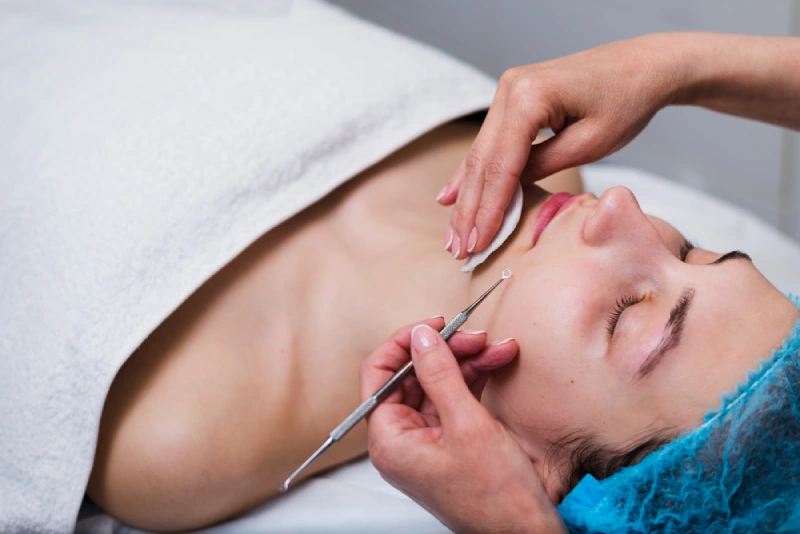A board-certified dermatologist is a medical doctor who has received extensive training in dermatology. Not every aesthetic procedure requires the skill and expertise of a dermatologist, but some most certainly do.
What is a Board-Certified Dermatologist?
A dermatologist is a medical doctor specializing in the treatment of the skin, hair, and nails. Most dermatologists will spend 4 years in undergraduate school, 4 years in medical school, 1 year in an internship, and at least 3 years in a residency. At minimum, a dermatologist will have 12 years’ worth of experience and knowledge by the time they enter into a medical practice.
Once a dermatologist has finished their schooling, they can choose to take a rigorous, comprehensive exam offered by the American Board of Dermatology. If they pass, they become a board-certified dermatologist.
Why is Board Certified Better?
All doctors receive some training in dermatology and can legally provide you with dermatological healthcare. That does not mean, however, that dermatology is their specialty or an area in which they have a great deal of experience.
If you go to a board-certified dermatologist, you can be assured that they are experts in the care of skin. Would you rather undergo an invasive cosmetic procedure with a doctor who has maybe done it once or twice or one who has studied and practiced the procedure for a minimum of 12 years?
What Can Your Board-Certified Dermatologist Do for You?
Many cosmetic procedures are non-invasive or minimally invasive and can be safely delegated to experienced aestheticians. Other procedures are safest and have the best outcomes when performed by a board-certified dermatologist.
- While superficial microneedling for wrinkles or skin tone can be performed by an aesthetician, you’ll have to leave deeper microneedling and scar revision to your dermatologist. This will minimize your risk of infection and injury and improve your outcomes.
- Although aestheticians can go through special training to become certified laser technicians, you might feel more comfortable in the hands of a seasoned doctor if you are undergoing a deep laser resurfacing treatment.
- Any diagnosing or treatment of skin ailments should be left to a doctor. Dermatologists can diagnose and treat everything from rosacea to cysts to skin cancer. In fact, they are trained to diagnose up to 3,000 ailments of the skin, hair, and nails in addition to being able to address aesthetic concerns.
- Your board-certified dermatologist is the best person to write prescriptions for cosmetic and medical skin conditions. Although other doctors can technically do this for you, your dermatologist has the knowledge base to choose the best treatment plan for you.
- Many people feel more comfortable receiving injectables like Botox or fillers from a board-certified dermatologist. Like with laser therapy, aestheticians can receive specialized injectable training. However, a board-certified dermatologist has a much deeper understanding of facial anatomy than an aesthetician ever could. This can help avoid potential serious complications like vascular occlusions with injectables.
Even if a dermatologist isn’t the one performing certain procedures on you, it’s a good idea to go to a practice overseen by one. Although medical aestheticians are skilled and well-trained, they can offer you the highest standard of care when they are working under the guidance and protocols of a board-certified dermatologist.
In Conclusion
There is no substitute for the years of learning and experience that a board-certified dermatologist brings with them. If you have skin concerns, discuss them with an expert you can trust. Check the American Board of Dermatology website to see if a provider is board certified. If they are, there’s a good chance they’ll be able to provide you with the safest and most effective treatment plan to meet your needs.




